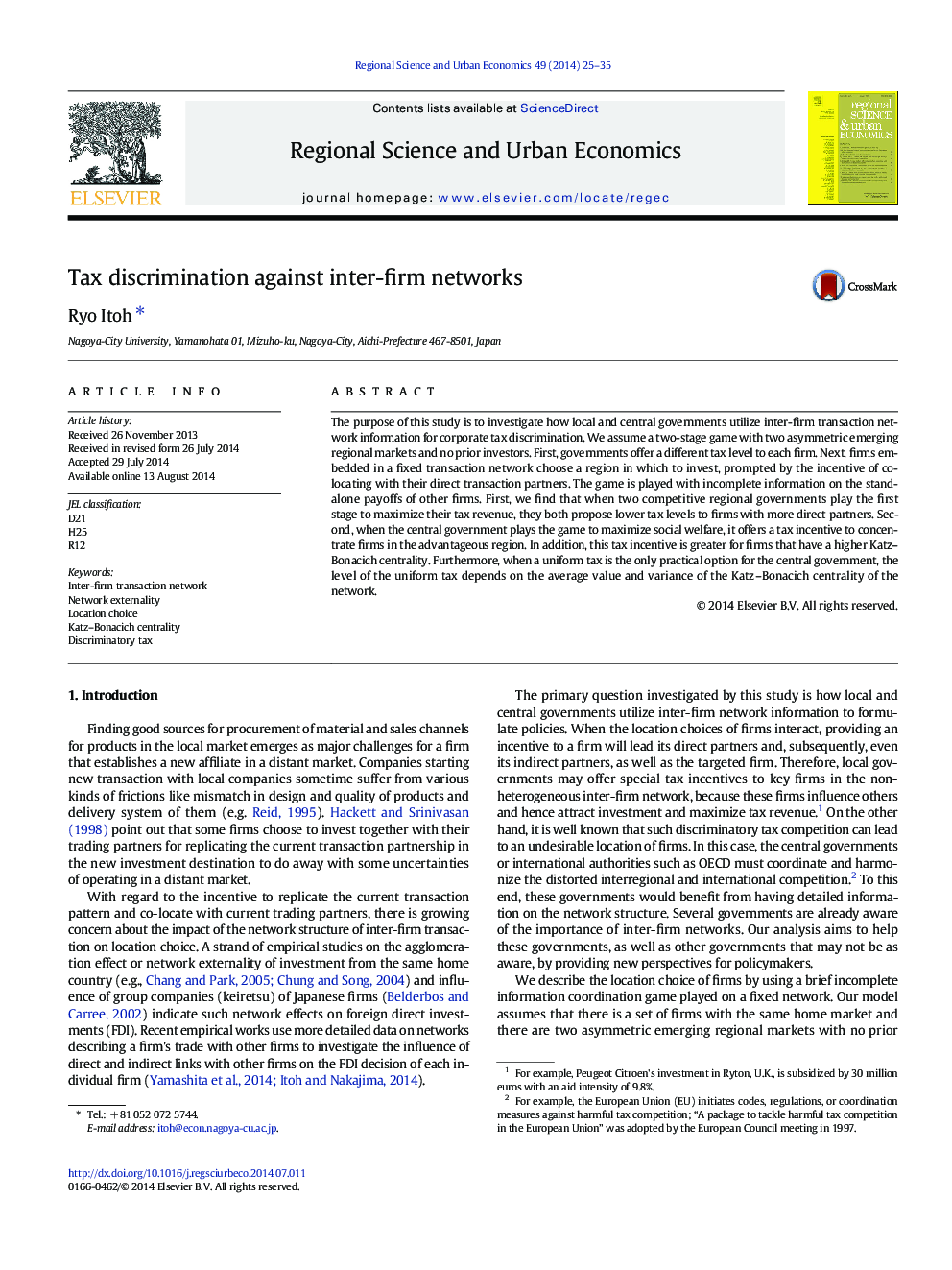| Article ID | Journal | Published Year | Pages | File Type |
|---|---|---|---|---|
| 7383804 | Regional Science and Urban Economics | 2014 | 11 Pages |
Abstract
The purpose of this study is to investigate how local and central governments utilize inter-firm transaction network information for corporate tax discrimination. We assume a two-stage game with two asymmetric emerging regional markets and no prior investors. First, governments offer a different tax level to each firm. Next, firms embedded in a fixed transaction network choose a region in which to invest, prompted by the incentive of co-locating with their direct transaction partners. The game is played with incomplete information on the stand-alone payoffs of other firms. First, we find that when two competitive regional governments play the first stage to maximize their tax revenue, they both propose lower tax levels to firms with more direct partners. Second, when the central government plays the game to maximize social welfare, it offers a tax incentive to concentrate firms in the advantageous region. In addition, this tax incentive is greater for firms that have a higher Katz-Bonacich centrality. Furthermore, when a uniform tax is the only practical option for the central government, the level of the uniform tax depends on the average value and variance of the Katz-Bonacich centrality of the network.
Related Topics
Social Sciences and Humanities
Economics, Econometrics and Finance
Economics and Econometrics
Authors
Ryo Itoh,
